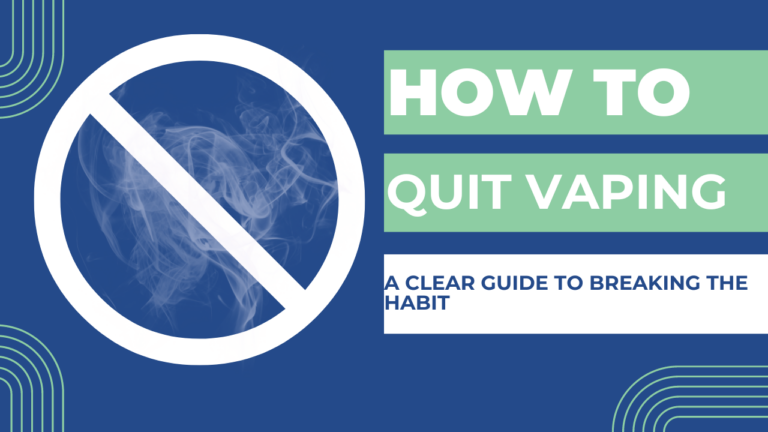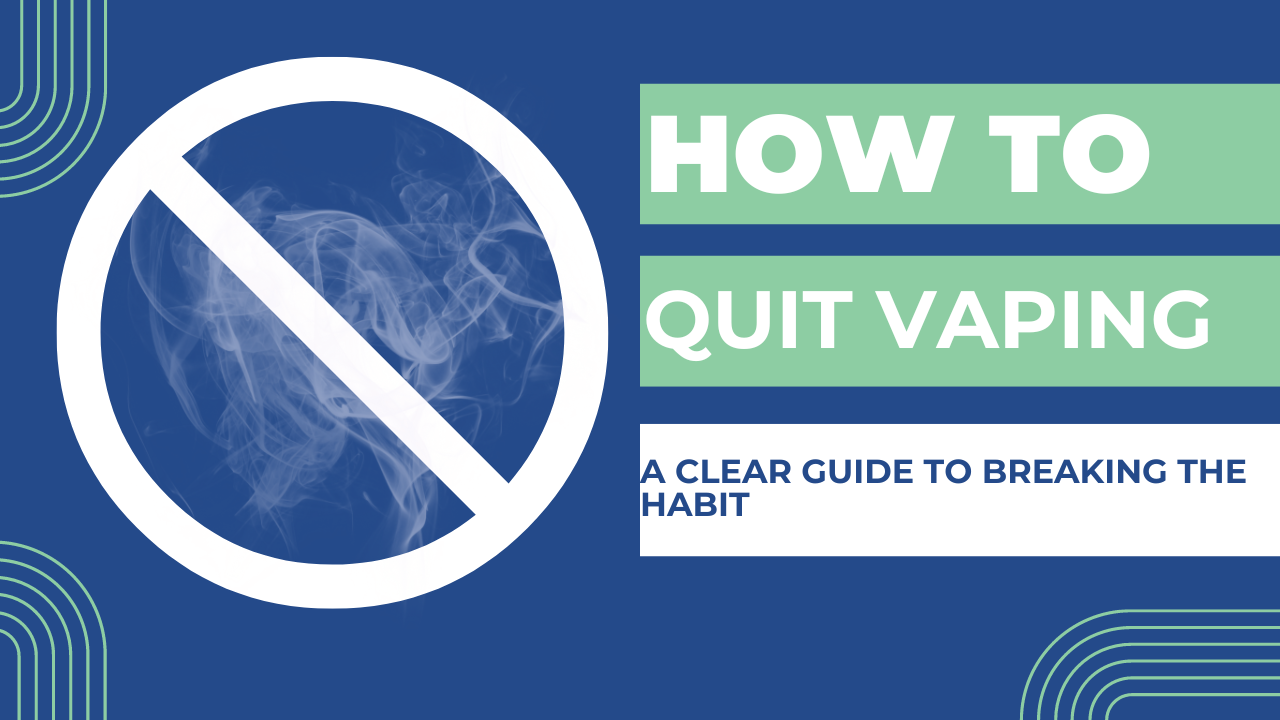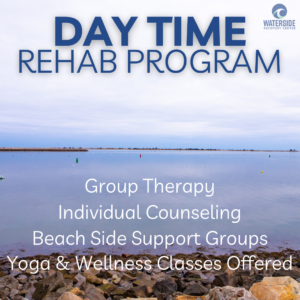
How to Quit Vaping: A Clear Guide to Breaking the Habit
Vaping has become increasingly popular in recent years, particularly among young adults. However, the long-term health effects of vaping are still unknown, and many individuals are seeking ways to quit. Quitting vaping can be challenging, but it is possible with the right strategies and support.
One important step in quitting vaping is to understand why you started in the first place. Many individuals turn to vaping as a way to cope with stress or anxiety, or as a social activity with friends. By identifying the underlying reasons for vaping, individuals can develop alternative coping mechanisms and social activities to replace vaping.
Another important strategy for quitting vaping is to gradually reduce nicotine intake. Many vaping products contain high levels of nicotine, which can lead to addiction. By gradually reducing nicotine intake, individuals can reduce withdrawal symptoms and increase their chances of successfully quitting. This can be done by gradually switching to lower nicotine products or by using nicotine replacement therapy, such as nicotine gum or patches.
Strategies to Quit Vaping
Setting a Quit Date
One of the most effective strategies to quit vaping is to set a quit date. This involves choosing a specific date to stop vaping and preparing for it in advance. It is important to choose a date that is realistic and gives enough time to prepare mentally and physically. On the quit date, it is recommended to get rid of all vaping devices and products to avoid temptations.
Behavioral and Cognitive Techniques
Behavioral and cognitive techniques can help individuals quit vaping by changing their thoughts and behaviors related to vaping. These techniques include identifying triggers that lead to vaping, finding alternative activities to replace vaping, and using positive self-talk to stay motivated. It is also recommended to practice mindfulness and relaxation techniques to manage stress and anxiety.
Finding Support and Resources
Quitting vaping can be challenging, but having support and resources can make the process easier. Support can come from friends, family, or support groups. Resources such as quit lines, online forums, and counseling services can also provide valuable assistance. It is important to find the right support and resources that work for the individual.
Nicotine Replacement Therapy
Nicotine replacement therapy (NRT) can help reduce withdrawal symptoms and cravings associated with quitting vaping. NRT products such as nicotine gum, patches, and lozenges can be used to gradually reduce nicotine intake and eventually quit vaping. It is important to consult with a healthcare provider before using NRT products.
Handling Withdrawal and Relapses
Withdrawal symptoms and relapses are common when quitting vaping. It is important to be prepared and have a plan to handle these situations. This can include using coping strategies such as exercise, deep breathing, or distraction techniques. It is also important to stay positive and not give up if a relapse occurs. With persistence and the right strategies, it is possible to quit vaping for good.
Most Commonly Asked Vape Questions
Vaping is still relatively new. Therefore, good and reliable information can be hard to find. Here, we will answer 20 of the most commonly googled questions related to vaping.
Is Vaping Worse Than Smoking?
Vaping is generally considered less harmful than smoking. However, it is not without risks. Vaping can still lead to nicotine addiction and other health issues.
Is Vaping Bad for You?
Yes, vaping can be bad for you. It involves inhaling chemicals and nicotine, which can harm your lungs and overall health. Long-term effects are still being studied.
Is Vaping Better Than Smoking?
Vaping is often seen as a better alternative to smoking because it produces fewer toxic chemicals. However, it is still not safe and can lead to health problems.
What is Vaping?
Vaping is the act of inhaling and exhaling vapor produced by an electronic cigarette or similar device. The device heats a liquid, usually containing nicotine, flavorings, and other chemicals, to create the vapor.
Does Vaping Cause Lung Cancer?
The link between vaping and lung cancer is not fully understood yet. However, vaping can cause lung damage and contains potentially harmful chemicals.
What Does Vaping Do to Your Lungs?
Vaping can cause lung irritation and inflammation. It can lead to respiratory issues like coughing and shortness of breath. Some studies suggest it can also cause long-term lung damage.
Is Vaping a Sin?
Whether vaping is considered a sin depends on individual religious beliefs. Some may see it as harmful to the body, which some religions teach should be respected and cared for.
Does Vaping Make You Lose Weight?
Vaping is not a safe or effective way to lose weight. While nicotine can suppress appetite, it is addictive and can have many harmful side effects.
What Are 5 Negative Effects of Vaping?
- Nicotine addiction
- Lung irritation and damage
- Increased risk of cardiovascular problems
- Potential exposure to toxic chemicals
- Negative impact on oral health
Are Zyns Better Than Vaping?
Zyns, which are nicotine pouches, are marketed as a safer alternative to smoking and vaping. However, they still contain nicotine, which is addictive and can have harmful effects on health.
How Much is a Vape?
The cost of a vape varies widely. Basic models can be as low as $20. More advanced devices can cost over $100. Additionally, you need to buy e-liquids, which range from $10 to $30 per bottle.
Can You Get Second Hand Smoke from a Vape?
Yes, you can get secondhand aerosol from a vape. This aerosol contains nicotine and other chemicals. While it is generally less harmful than cigarette smoke, it can still pose health risks.
How Many Cigarettes Are in a Vape?
This comparison is complex. A typical vape cartridge can contain as much nicotine as a pack of cigarettes. However, the actual nicotine intake can vary based on usage patterns and device settings.
Is Vaping Addictive?
Yes, vaping is addictive. Most vapes contain nicotine, which is highly addictive. Users can develop dependence and experience withdrawal symptoms.
Can You Vape While Breastfeeding?
It is not recommended to vape while breastfeeding. Nicotine and other chemicals in the vapor can pass into breast milk. This can harm the baby’s health and development.
How Much Nicotine is in a Vape?
Nicotine content in vapes varies. E-liquids typically contain anywhere from 0 to 50 milligrams of nicotine per milliliter. The amount you consume depends on the device and your vaping habits.
Can You Bring a Vape on a Plane?
Yes, you can bring a vape on a plane. However, you must pack it in your carry-on luggage. Vapes are not allowed in checked baggage due to safety regulations. Additionally, using a vape on the plane is prohibited.
How Old Do You Have to Be to Vape?
In most places, you must be 18 or older to vape. Some regions have set the minimum age at 21. Always check local laws and regulations to be sure.
Can Your Lungs Heal from Vaping?
Yes, your lungs can heal from vaping if you stop. The healing process begins once you quit, and over time, your lung function can improve. However, the extent of recovery depends on how long and how heavily you have vaped. It’s essential to quit vaping and adopt a healthy lifestyle to support lung healing. According to the American Lung Association, the lungs can begin to heal themselves once a person quits vaping or smoking.
Can You Vape in Public Places?
Whether you can vape in public places depends on local laws and regulations. Many areas have restrictions on vaping in public places, similar to smoking bans. It’s important to check and follow the specific rules in your area to avoid fines and respect public health guidelines. Generally, the answer is no.
At Waterside Recovery Centers we pride ourselves on providing the top addiction treatment in Massachusetts. With a range of evidence-based, client-focused and individualized treatment offerings, we are able to provide the ideal support for those seeking recovery from substance addiction. Please feel free to reach out to our help line at anytime.
(833) 985-4234





